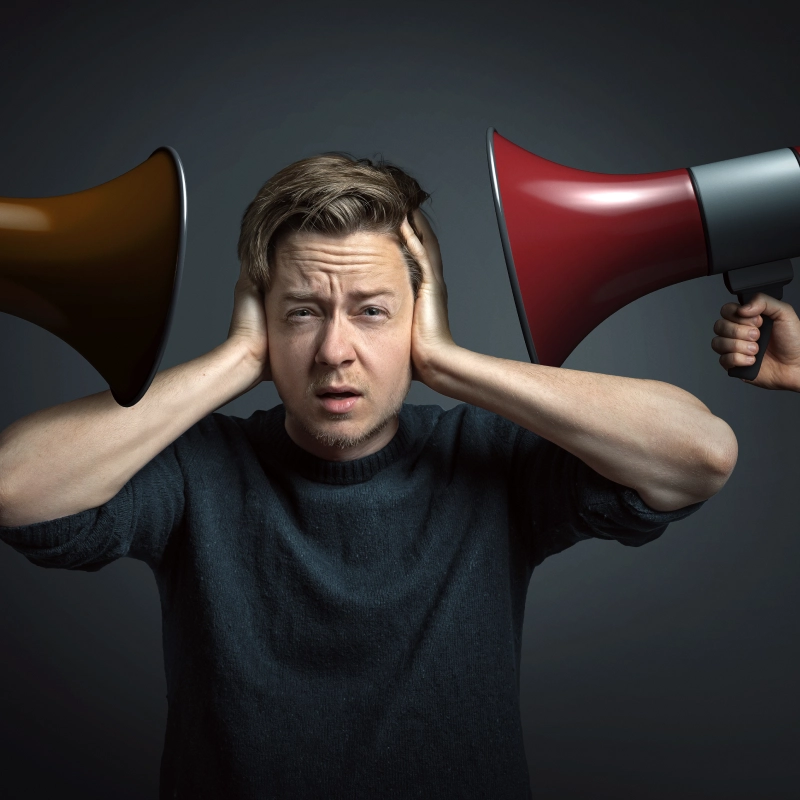
In today's fast-paced world, we are constantly bombarded with noise. From the roar of traffic to the blaring music in clubs, our ears are under constant assault. While occasional exposure to loud sounds may not cause lasting damage, chronic exposure to noise can have a significant impact on our hearing health, leading to a condition known as noise-induced hearing loss.
Understanding Noise Levels
Noise is measured in decibels (dB). A whisper measures around 30 dB, while a jet engine can reach 150 dB. The National Institute on Deafness and Other Communication Disorders (NIDCD) defines safe noise exposure as anything below 85 decibels for eight hours. However, any sound above 120 dB can cause immediate damage to your hearing.
How does Noise affect our Hearing?
Noise can damage the hair cells in our inner ear, which are responsible for converting sound waves into electrical signals that our brain interprets as sound. When these hair cells are damaged, they cannot be repaired and we can experience hearing loss.
Hearing loss can be temporary or permanent. Temporary hearing loss is often caused by short-term exposure to loud noises, such as attending a concert or standing near a construction site. Permanent hearing loss is more serious and is caused by long-term exposure to loud noises, such as working in a noisy factory or listening to loud music through headphones for many years.
Symptoms of NIHL
Here are some signs and symptoms that may indicate NIHL:
- Muffled or dull hearing
- Difficulty understanding speech, especially in noisy environments
- Ringing in the ears (tinnitus)
- Dizziness
- Difficulty concentrating
What are the other impacts of Noise exposure?
In addition to hearing loss, noise exposure can also have a number of other health impacts, including:
- Tinnitus: This is a ringing or buzzing sound in the ears that can be caused by noise exposure.
- Stress: Noise can be a major source of stress, which can lead to a number of health problems, including headaches, high blood pressure, and heart disease.
- Sleep problems: Noise can make it difficult to fall asleep and stay asleep, which can lead to fatigue and other health problems.
- Cognitive problems: Noise exposure has been linked to cognitive problems, such as memory loss and difficulty concentrating.
How can we protect ourselves from Noise exposure?
There are a number of things we can do to protect ourselves from noise exposure, including:
- Wearing ear protection: Earplugs and earmuffs can help to reduce the amount of noise that reaches our ears.
- Limiting our exposure to loud noises: We should try to avoid spending too much time in loud environments, such as nightclubs and construction sites.
- Turning down the volume: We should listen to music and other audio at a moderate volume.
- Taking breaks: If we are exposed to loud noises for long periods, we should take regular breaks to give our ears a chance to rest.
Conclusion
Noise exposure is a serious health hazard that can have a significant impact on our hearing and overall well-being. By taking steps to protect ourselves from noise exposure, we can reduce our risk of hearing loss and other health problems.
Here are some additional tips for protecting your hearing:
- Be aware of your surroundings: Pay attention to the noise levels in the environment and take steps to protect your hearing if necessary.
- Use ear protection in noisy environments: There are a variety of ear protection options available, such as earplugs, earmuffs, and noise-canceling headphones.
- Take breaks from loud noises: If you are exposed to loud noises for long periods, take regular breaks to give your ears a chance to rest.
- See a doctor if you have concerns about your hearing: If you are concerned about your hearing, it is important to see a doctor to get a diagnosis and treatment.

